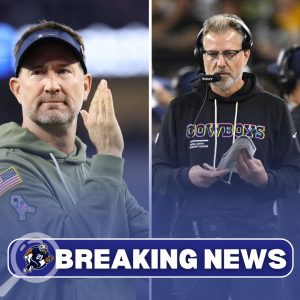Bruce Springsteen has a notoriously complicated relationship with his nickname, “The Boss.”
The moniker — which actually predates the formation of his legendary E Street Band in 1974 — was affectionately coined by fellow musicians because of Springsteen’s leadership role in their early tours but it took on a life of its own that he was never quite comfortable with.
“I hate being called ‘Boss.’ I just do,” he admitted to Creem Magazine in 1980. “Always did from the beginning. I hate bosses. I hate being called the boss.”
The 2025 movie Springsteen: Deliver Me from Nowhere, which includes characters casually calling Springsteen “Boss,” delves into a particularly fraught period in the artist’s early career where he was still coming to grips with worldwide fame. He fiercely resisted publicity — and asked fans outright to stop calling him “The Boss” — as he tried to hang onto his working class roots.

Keep scrolling for all of the background on why Springsteen is called “The Boss.”
Springsteen’s “Boss” nickname predates the formation of the E Street Band in 1974., Springsteen initially acted as a de facto tour manager for his various New Jersey bar bands because they couldn’t afford to hire anyone for the role.
Various band members — including future E Street Band guitarist Steven Van Zandt — began jokingly referring to Springsteen as “The Boss” because he handed out their earnings after each small-time gig.
“In the early days when he and the E-Street Band played gigs in small venues, it was Bruce’s job to collect the money and pay the rest of the band,” author Andrew Delahunty told BBC News in 2009. “This led them to start calling him ‘The Boss,’ a nickname which has stuck.”

Van Zandt took credit for popularizing the nickname during an interview for Peter Carlin’s 2012 biography Bruce.
“I remember people calling him that and not taking it seriously,” the guitarist remembered. “Not ‘til I started calling him the Boss. Then they took it seriously because I was a boss, too. So when I started calling him the Boss, the vibe was, ‘If Stevie’s doing it, there’s something to this!”
A DJ reportedly overheard a member of the E Street Band use the nickname in 1974 and soon started using it on the air to introduce Springsteen’s songs. The rest is history …
What Has Bruce Springsteen Said About His Nickname?
Springsteen had an adverse reaction to being called “The Boss” because it put him at odds with his working classic background.
“My recollection was ‘The Boss’ was a result of paying [band members and crew] at the end of the week,” he confirmed to Mojo in 1999. “It was never meant for public dissemination.”
His earliest public comments on the nickname were in a Creem Magazine interview in 1980, when he complained that it had gone from a term of endearment with “people who work around you” to a very public joke. During live performances of the 1973 classic “Rosalita (Come Out Tonight),” Springsteen started altering the lyrics on stage to demand: “You don’t have to call me lieutenant, Rosie/Just don’t ever call me Boss!”

Bruce eventually did embrace being “The Boss,” as E Street Band members frequently kidded him about it on stage during their 1999 reunion tour.
“‘The Boss,’ which dogged me my whole life, still does,” he admitted to The Hollywood Reporter’s “Awards Chatter” podcast in May 2025. “I’ve gotten used to it. I’ve given up and gotten used to it, I suppose.”
Is E Street a Real Place?
Another major aspect of Springsteen’s mythology revolves around E Street. Springsteen’s backing band was originally formed in 1972 but wasn’t officially called the E Street Band until late 1974.
The E Street Band does take its name from a real place — E Street in Belmar, New Jersey. Early E Street Band keyboard player David Sancious‘ mother lived on E Street and the group frequently used her garage for their rehearsals.

“My recollection is we were on the bus one night trying to come up with a band name,” Springsteen explained. “E Street Band seemed pretty easy — it just had a nice ring to it … David was a big, important part of the band at the time and it just came up.”
Springsteen’s second album — 1973’s The Wild, the Innocent & the E Street Shuffle — drew inspiration from the name of his evolving backup group and there’s even a track on the record called “E Street Shuffle.”
The musician started incorporating the phrase “over here on E Street Band” in stage patter — and eventually on social media — to reference happenings within the group.
Just For You





